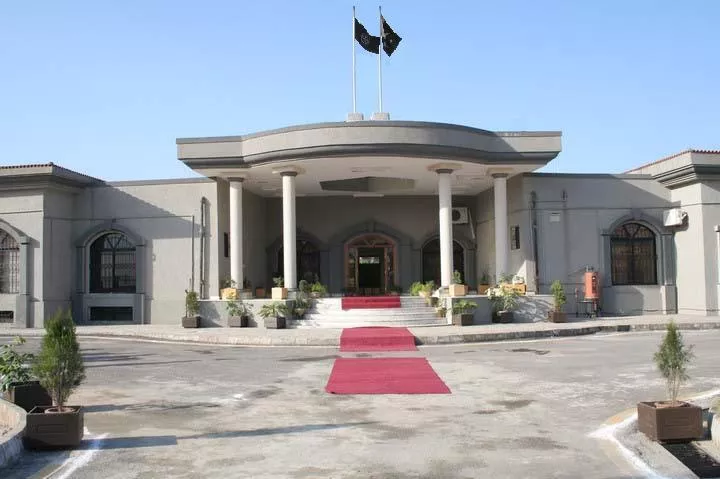IHC rejects plea seeking ban on public gatherings
Justice Minallah says it is executive’s job to enforce court judgments
ISLAMABAD:The Islamabad High Court on Thursday dismissed a plea seeking a ban on political and religious gatherings in the country because of the second wave of Covid-19, observing that the court had already ruled on the matter and it was the executive’s job to enforce the coronavirus standard operating procedures (SOPs).
The petitioner had pointed out that public gatherings were still being held despite the IHC’s earlier ruling wherein it had endorsed the decision of the National Command and Control Centre (NCOC) to prohibit them.
However, IHC Chief Justice Athar Minallah termed the petition non-maintainable.
“The court has already given its order. It is up to the executive to implement it," the IHC CJ observed.
"The question that arises then is that whether this country is being run under the rule of law or not," he added.
“The court is not inclined to exercise its extraordinary constitutional jurisdiction if the executive is unable to enforce [the order].”
The IHC chief justice told the petitioner to trust the parliament because "that is where the solution lies".
He further noted that despite the guidelines announced by the NCOC, the public was refusing to follow the SOPs. “Why should the court intervene if the society cannot take responsibility for its actions?” he observed.
In his verdict, the IHC CJ noted that judgments rendered by judicial forums became meaningless and ineffective in times of crisis when it appeared that the executive authorities lacked the capacity to implement them in letter and spirit.
“Judgments, unless respected by the citizens, state institutions and political leadership, remain unenforced and thus rule of law is undermined and consequently it profoundly impacts the confidence of the people in the judiciary.”
The IHC CJ also dismissed the part of the plea which sought directions to the Pakistan Electronic Media Regulatory Authority.to ban coverage of individuals violating the SOPs as it involved elements of freedom of speech and carried "likely implications in the context of the guaranteed fundamental rights under Articles 19 and 19-A of the Constitution of the Islamic Republic of Pakistan, 1973".
“"If the [parliament], the supreme forum which represents every citizen, has opted not to play its role nor the elected executive and other political leadership appear to have the will to rise above their differences and unite the nation, then a judgment rendered by this court relating to the emergency and crisis situation due to Covid-19 is likely to remain unenforced," the verdict read.
Last month, the IHC had dismissed a petition challenging the ban on marquee halls and ruled that the implementation of NCOC's decisions was mandatory in the event of the coronavirus crisis and legal action might be taken against those violating them.
The NCOC had decided that no indoor event would be allowed and only outdoor events with a maximum of 300 guests would be permitted.
The court stated that the organisers of the public gatherings would be responsible for any loss of human life due to Covid-19.
It added that that in view of the second wave of coronavirus, the SOPs introduced by the NCOC should be strictly implemented. The IHC CJ also said it was high time for all the political parties to demonstrate unity against the pandemic.


COMMENTS
Comments are moderated and generally will be posted if they are on-topic and not abusive.
For more information, please see our Comments FAQ